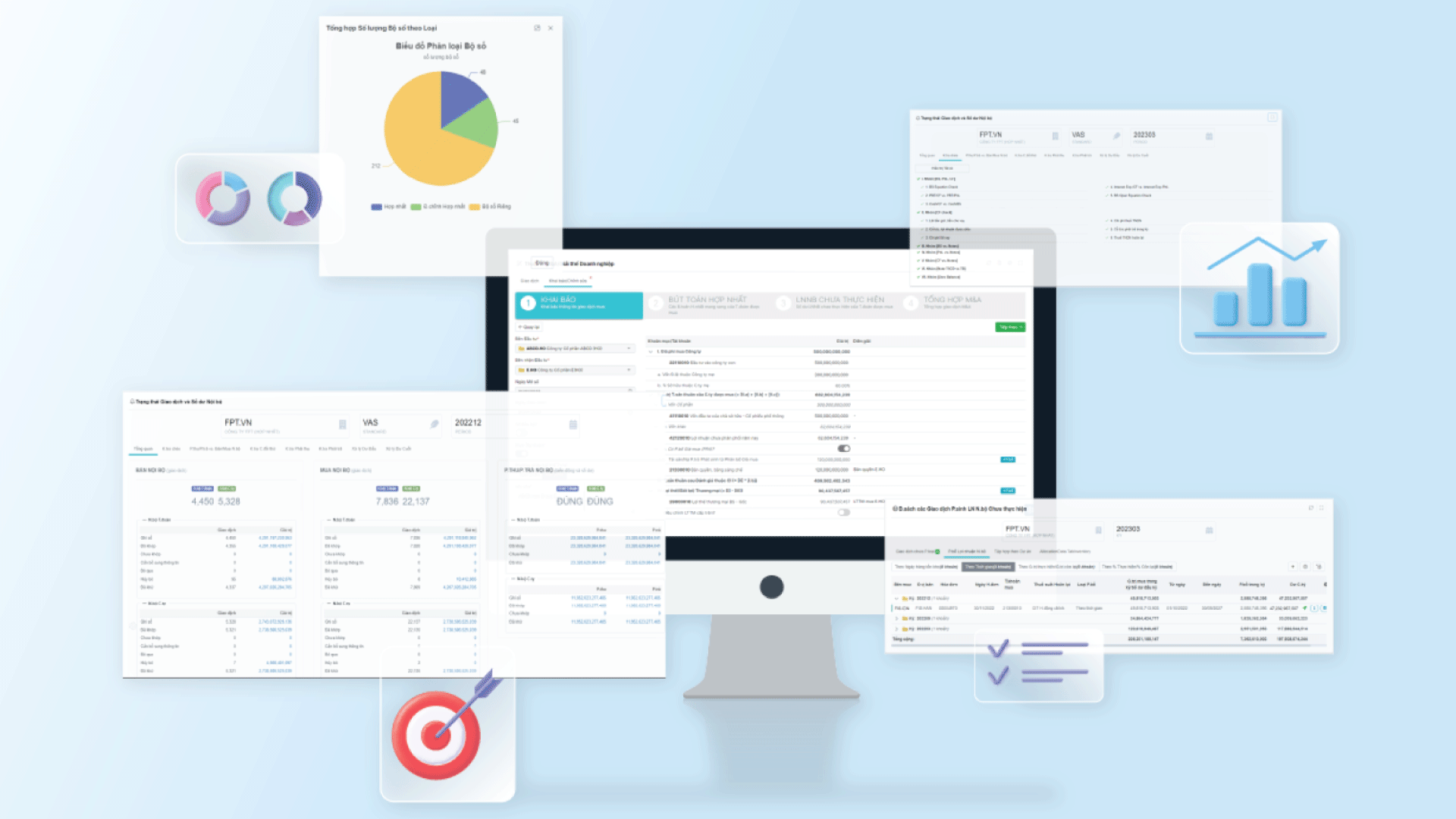In today’s business environment, financial data management has become an indispensable factor, determining the success and sustainable development of enterprises. Forward-thinking leaders are continuously exploring innovative solutions to streamline financial management processes and make accurate financial decisions. However, can traditional tools like Excel still meet the increasingly complex requirements?
Limitations of Using Excel Spreadsheets in Financial Data Management
Although Excel remains a popular tool, managing financial data through spreadsheets is revealing many limitations. For example, Excel does not have strict data input control features. Data entry errors can easily occur and often go undetected, leading to inaccuracies in financial report figures. Additionally, Excel lacks specialized security features for financial data, making these files susceptible to manipulation. As businesses expand, the number of employees accessing Excel files increases, and the risk of data falsification and fraud rises significantly.
With multiple employees accessing the same Excel file, instances of confusion and version conflicts are highly likely to occur. Each time an employee updates or modifies the file, a new version may be created and stored in different locations. When it comes to consolidating or retrieving data, identifying the “official” version becomes a significant challenge, potentially leading to discrepancies in the reported financial data.

Data in Excel is highly susceptible to being lost or corrupted without an effective backup system in place. When an Excel file experiences errors or is deleted due to human mistakes, critical financial reports may be impacted. Most importantly, when key financial personnel leave the company, if there is no proper handover process, data stored in Excel files may be incomplete or inaccessible. This can create information gaps in the company’s financial statements.
The cumulative risks from the aforementioned minor errors can lead to significant discrepancies in financial statements, reducing the transparency and accuracy of the company’s financial management. Moreover, collecting data from multiple sources and systems is highly complex and labor-intensive. For large corporations or enterprises, synchronizing data across subsidiaries, branches, or departments becomes a major challenge, complicating the tracking of internal transactions and timely responses to urgent requests from management or investors. With manual data consolidation processes, the time required to aggregate data and generate comprehensive reports can extend to days or even months, especially when dealing with large volumes of data or data that needs to be processed from various sources. This can cause the company to miss opportunities for making swift decisions.
These limitations not only increase the risk of errors but also impact the cost and time allocated by personnel for financial management. Businesses require a more efficient, consistent, and transparent management system to minimize risks while optimizing operational costs.
Financial data management solutions – A key factor in the success of a business.
Today, businesses are rapidly adopting technology and modern data management solutions to address the challenges of processing and consolidating financial data, particularly with the complex needs of financial statement (FS) consolidation.
Many large businesses are currently using integrated Enterprise Resource Planning (ERP) systems, such as SAP, Oracle, or Microsoft Dynamics. These systems allow for the connection of business and financial processes on a single platform, enabling the real-time consolidation of data from various departments, branches, or subsidiaries. This streamlines the FS consolidation process, improves efficiency, reduces errors, and enhances accuracy.
To enhance operational efficiency in preparing financial statements as per business requirements and optimize costs, businesses should utilize the comprehensive financial reporting software – FPT CFS. This solution is a comprehensive tool that synchronizes data and automates up to 99% of the FS preparation process. The software ensures high accuracy, facilitates easy data retrieval and export, and supports the integration of data from various accounting systems, meeting both VAS and IFRS standards. With FPT CFS, data from multiple sources is automatically collected, standardized, and consolidated on a single platform, helping businesses eliminate manual consolidation processes and minimize the risk of errors. This is an invaluable tool for quickly and easily preparing FS, even for organizations with complex structures.

In addition, artificial intelligence (AI) and modern data analytics tools such as blockchain are gradually becoming powerful aids for businesses in processing large volumes of data. The integration of AI can automatically detect anomalies, process, and consolidate data at speeds many times faster than manual methods. Smart analytics tools allow management to easily gain an overview of cash flow, profits, and financial indicators in real-time, thus supporting more accurate decision-making. Smart dashboards present financial data in the form of charts, allowing users to easily track important financial metrics in a visual format. This not only improves transparency but also enables management and investors to easily access the necessary information without waiting for the manual consolidation and verification process.
With the rapid development of technology, the trend of digital transformation in financial management is no longer an option but a necessity. Companies can not only enhance efficiency and accuracy in reporting but also gain a competitive advantage through the ability to make quick financial decisions and respond flexibly to the information needs of management and investors. Modern technological solutions are helping businesses not only save time and costs but also drive sustainable growth and development in an increasingly competitive market.













